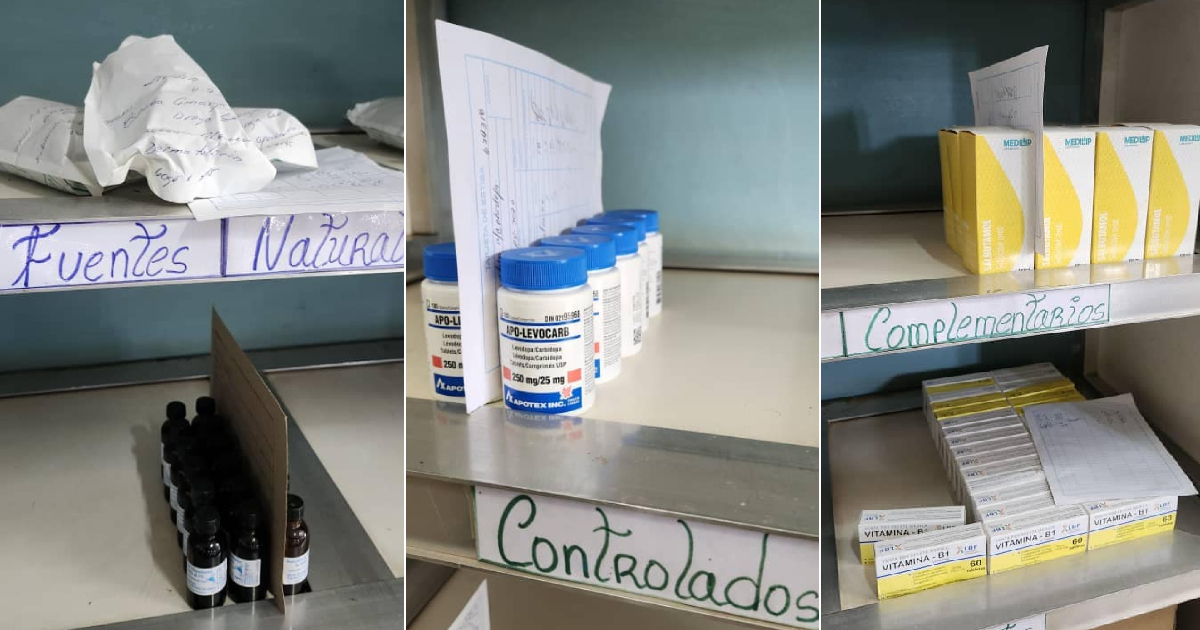
The Minister of Public Health in Cuba, José Angel Portal Miranda, informed the deputies of the Health and Sports Commission of the Cuban Parliament this Tuesday that the shortage of medications will continue in the pharmacy network throughout the country.
"Stating that this situation will be resolved in the coming days would be irresponsible," the minister pointed out, justifying the shortage due to lack of funding and internal organizational issues, as reported by the officialist website CubaDebate.
The industry leader attributed the situation to the economic embargo, the rise in the price of raw materials, and the high cost of freight, factors that, according to him, worsen the problem.
The portal admitted to the deputies that the problems range from production and importation to the dispensing of drugs in community pharmacies and institutions, thus recognizing the seriousness and extent of the shortage.
This regrettable situation, which affects the citizenry, was confirmed by Cristina Luna Morales, president of the commission, who highlighted people's great concern about the illicit sale of medications, currently the only way many can access certain drugs.
As part of a check carried out on the operation of community and hospital pharmacies, Luna reported that the issue of shortages is recurring throughout the country and negatively impacts the services provided by the National Health System.
On the other hand, María Cristina Lara Bastanzuri, National Director of Medicines and Medical Technologies of the Ministry of Public Health, pointed out that the shortage particularly affects control card products (sale by ration card) and common use medications.
"80% of the drugs dispensed in pharmacies are produced by the national industry," he pointed out.
The official admitted that currently they only manage to supply 30% of the basic list of medicines.
Furthermore, he acknowledged that they have been forced to "move the medications that are in hospitals, polyclinics, so that they are available, for example, when a child needs them."
The official acknowledged that there are internal problems that also affect the limited availability of medicines, admitting that sometimes the medicines are in Cuba and "we fail to make them available in a timely manner, not only due to fuel and transportation, but also because the personnel of other institutions that provide services to us are affected."
Lastly, Lara explained that the number of patients needing a control card has increased. Regarding this situation, she blamed the doctors, stating that they, "out of desperation for the patient to have at least one medication, prescribe what is available instead of what they really need."
The report presented to the deputies also pointed out migration and low salaries as other causes of drug shortages, which is evidenced by the reduction in specialized personnel, including technicians and graduates.
They also pointed out that at the national level, the production plan for natural products is not being met, both in terms of volume and variety, an alternative that the regime has repeatedly defended as a solution to shortages.
They pointed out the lack of plant mass, refined sugar, natural alcohol, and other pharmaceutical raw materials as the causes.
Regarding the implementation of the new prices for natural products, the report acknowledged that it has been an unsuccessful policy, as sales of the products decreased due to the increase in prices of the raw materials for their production.
The situation worsens because pharmaceutical companies do not have administrative and cargo transportation, according to CubaDebate.
The report presented to the deputies showed that Cuba has more than 3,000 units in pharmaceutical services, including 2,202 community pharmacies and more than 600 in institutions.
They also pointed out that there are 17 pharmacy and optic companies subordinate to the provincial governments, which in turn oversee community pharmacies, 77 local production centers, and other units.
Lastly, the document pointed out that the current basic list of medications consists of 651 products. The industry generates 62% of the total, with 401 items, while 250 are imported by the Ministry of Public Health. Out of this list, 292 medications are available for sale in the pharmacy network.
Faced with the current shortages in the pharmaceutical network, the Cuban government has been forced to extend the tariff exemption on food, hygiene products, and medicines for travelers coming from abroad as a desperate measure to alleviate the crisis in access to medications.
At the beginning of the year, the ruler Miguel Díaz-Canel acknowledged that the shortage of medicines and medical supplies will continue on the island, where pharmacies are understocked and dozens of products from the basic list are missing.
This situation is evidenced by people's desperate attempts to buy the few products that occasionally arrive at the pharmacies, even going as far as sleeping overnight to secure a good spot in the long lines.
What do you think?
COMMENTFiled under: